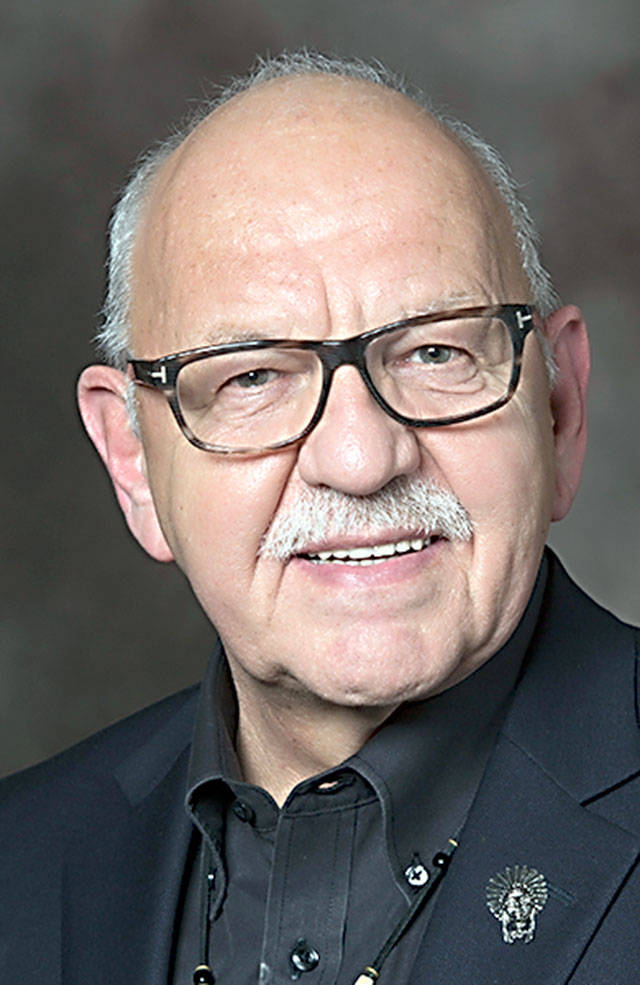TACOMA — The Jamestown S’Klallam, Port Gamble S’Klallam and Suquamish tribes are taking on pharmaceutical companies and drug distributors, claiming the companies flooded their reservations with deadly opioids.
The lawsuit, filed Monday in U.S. District Court in Tacoma, is similar to hundreds of others across the nation — including a suit by Clallam County — and names Purdue Pharma, Johnson & Johnson and other manufacturers and distributors as defendants.
It claims the companies are responsible for the opioid epidemic that has disproportionately affected tribes locally and across the country.
“We have the same concerns of our sister tribes and other entities with regard to the way pharmaceuticals have been advocating and promoting these various opioid drugs that are causing all kinds of problems,” said Ron Allen, chairman of the Jamestown S’Klallam Tribe based in Blyn, on Wednesday.
“We think the way they promote them and the way they encourage doctors in various clinics to prescribe them is a significant portion of the negligence that we’ve been witnessing.”
Negligence is only one of the tribes’ many accusations described in the lawsuit.
The tribes accuse the pharmaceutical companies of fraud, negligence, unjust enrichment, civil conspiracy, of being racketeer-influenced, organizations and several other accusations.
“We want to make sure tribes are at the table because tribes are being disproportionately impacted by the [opioid] crisis,” said Ed Goodman, a Portland, Ore., attorney representing the tribes.
“If there’s a settlement, we want to make sure the tribes are sitting at the table and a part of that negotiation … and helping resolve the impacts on Indian Country.”
Native Americans and Alaskan Natives die from opioid overdoses at higher rates than any other ethnic group in the state.
According to the state Department of Health, Native Americans and Alaskan Natives died from opioid overdoses at a rate of 34.4 per 100,000 between 2011 and 2015, nearly three times the rate white and black people died from opioid overdoses during that period.
The lawsuit blames the opioid epidemic on the pharmaceutical companies and distributors “who made billions of dollars off the epidemic.
“The Tribes have seen child welfare and foster care costs associated with opioid-addicted parents skyrocket; their health services have been overwhelmed; education and addiction therapy costs have substantially increased; and almost every tribal member has been affected,” the complaint says.
“These costs could have been — and should have been — prevented by the opioid industry.”
Goodman said the more than 400 lawsuits — filed by cities, counties and tribes across the nation — are being consolidated in a federal court in Ohio and the proceedings will be overseen by Judge Dan Aaron Polster.
Polster is encouraging the plaintiffs and defendants to reach a settlement sooner rather than later, with hopes of coming to a resolution that addresses the national crisis by the end of the year, The New York Times reported Monday.
The 110-page complaint filed Monday outlines the impact opioids have had for tribes.
The lawsuit cites increasing prescriptions and deceptive marketing among the causes of the epidemic. In Clallam County there were 1,164 opioid prescriptions per every 1,000 residents and in Jefferson County there were 819.6 opioid prescriptions per 1,000 residents, according to the lawsuit.
“Each Pharmaceutical Defendant developed a well-funded marketing scheme based on deception to persuade doctors and patients that opioids can and should be used for treatment of chronic pain, resulting in opioid treatment for a far larger group of patients who are much more likely to become addicted,” the lawsuit says.
This included deceptive marketing, false or misleading advertisements, false or misleading direct-to-physician marketing, false or misleading materials, speaker programs, webinars and brochures, and false or misleading unbranded advertisements, according to the lawsuit.
The tribes are seeking an award for all damages, an amount that would be determined at trial. Among the requests is for the pharmaceutical industry to fund an “abatement fund” that would be used to abate the “public nuisance caused by the opioid epidemic.”
________
Reporter Jesse Major can be reached at 360-452-2345, ext. 56250, or at jmajor@peninsuladailynews.com.

